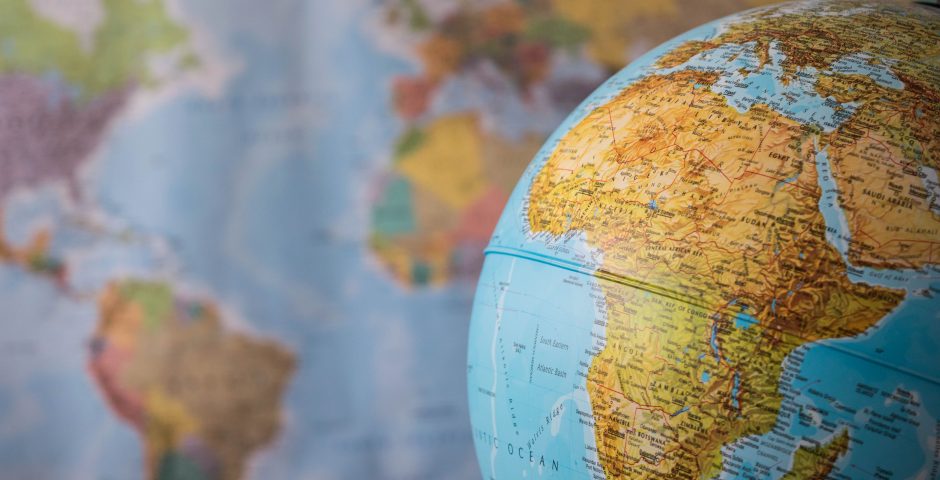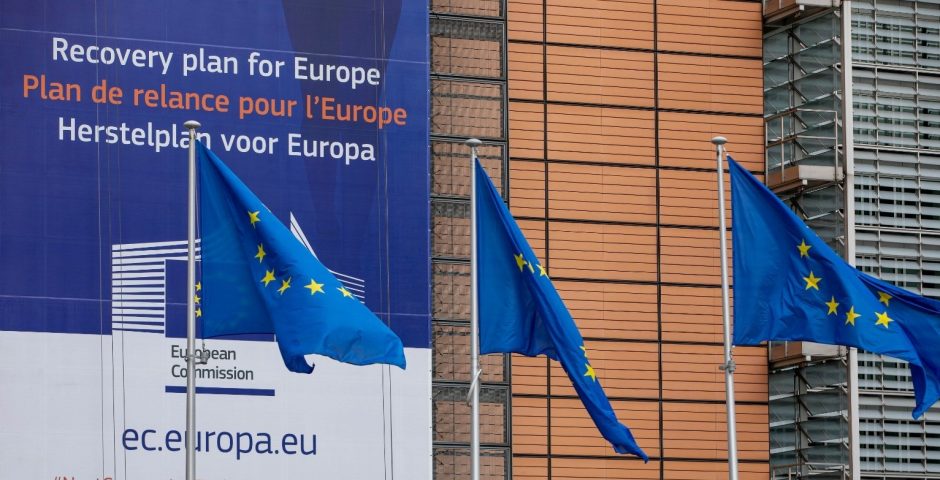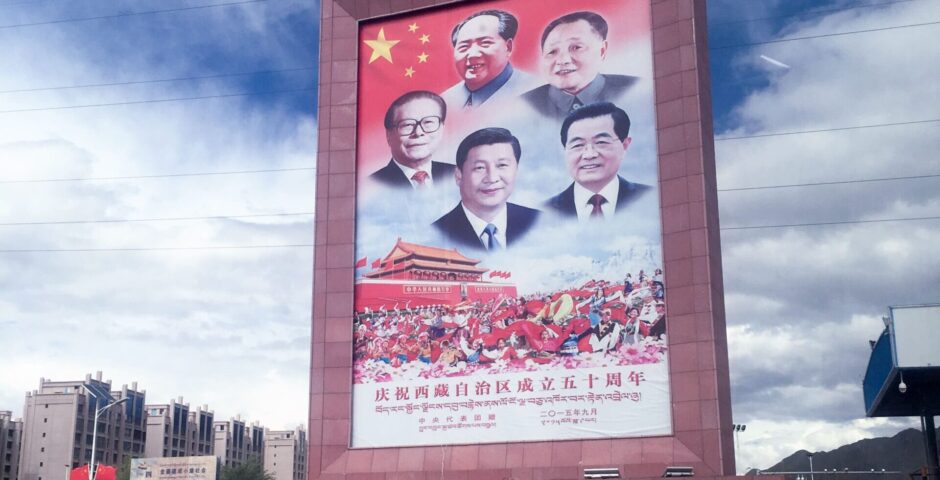EU-Africa relations part I: From colonisation to an equal dialogue?

The historical context of EU-Africa relations post-colonisation.
This series will investigate various dimensions of the relations between the EU and Africa. This first part looks at the emerging relation after colonisation, it will form a historical context on which the following articles are built. Africa is often seen as one entity, however in reality it is far more complex. The relationship between the EU and the various African nations is complicated. Both regions cover multiple countries which all have their own desires, preferences and priority. Furthermore there is a painful historical relationship of colonisation. The starting point of EU-Africa relations is hard to define precisely. Some say that it started in the 15th century with trading policies, while others state that the relationship started with 19th century imperialism. Finally there are scholars that argue that formal relationships did not emerge until the 50’s or maybe even 80’s of the 20th century. The argument here is that countries need to be independent to form a relationship that is somewhat equal. This article takes the first convention of the European Economic Community (EEC) with some African countries in the 1960’s as a starting point.
The (De)colonisation period
Many African countries were still colonised by European powers when the EEC was founded. Some countries, like Belgium, wanted to include their colonies in the EEC. There also was a special clause in the Treaty of Rome about oversea territories under article 131 which ruled on the ‘associated status’ of these areas. This status gave these areas privileged market access to the European market. After decolonisation, a relationship of dependence remained between the former colonies and former colonizers. Many countries that were formerly under British rule became members of the ‘Commonwealth’ and many countries that were under French rule became members of the organisation ‘La Francophonie’. Meanwhile a dialogue emerged between African countries and the EU.
Yaoundé Conference: The first step towards equality?
The decolonization process of the African continent did not go in a simultaneous manner. For example, Ghana became independent in 1957 while Zimbabwe became independent in 1980. The Yaoundé conference resulted in the first agreement between the EU and various independent African states. It is sometimes seen as an attempt by the EEG to maintain their connection to the former colonies and continue their access to natural resources.
However, not every country was present at the conference. This was later seen as a EU tendency to make agreements e with individual countries and not on a pan-African level. This is often seen as neocolonialism since the African countries were deprived of the chance to unite and create an independent economy, while confronting a much more unified European bloc.. As such unequal economic positions were reinforced, which led to asymmetric and unbalanced relationships. At the same time, this was the first time that the EEG acted on a regional level. The agreement is seen as an important step for regionalism within trade agreements. The 1963 convention of the association between the EEG and the associated African and Malagassy states was the first international agreement between sovereign states of the African continent. This did help with the acknowledgement of independence of these countries. The treaty itself focuses on principles of equality and reciprocity. Still, the agreement faced a lot of criticism. The question was whether or not the next conference could solve this.
De Lomé Conference: a more equal agreement?
The Lomé conference of 1974 followed the Yaoundé conference. This new conference also included other countries in the Caribbean and Pacific. They were grouped together under the term ACP (Africa-Caribbean-Pacific). Before the conference started the Yaoundé conference that preceded this one had already received a lot of critique. Many critics saw the treaty as neocolonial and decisive since not every African country was included in the conference. During this time, there was a strong Pan-African sentiment within Africa and the wider world. Many people in Africa felt solidarity with each other across the continent. Pan-Africanists argued (and continue to argue) that the borders on the continent and the nation states that were formed by them are a colonial construct and therefore not felt by the people of the continent and its diaspora.
The United Kingdom joined the EEG in 1973, which immediately presented a new challenge. The countries that had united under the Commonwealth could potentially also be included in a new treaty between Africa and the EEG. This meant more countries involved, increasing the complexity of existing power dynamics. . The Lomé conference stressed the principle of equality. This had a lot to do with the fact that the ‘Third World’ did not want to be played around by East and West in the Cold War. The countries wanted to be seen as equal partners. The goal was complete equality between partners and to setup a cordial and continued partnership in the spirit of international solidarity. The countries involved wanted to create a more balanced and just economic order. In actuality, the Lomé conferenced changed very little to the unbalanced economic relationships between the EEG and ACP countries. The ACP countries imported high value goods from the EEG and the EEG imported cheap source materials from the ACP-countries. The treaty is still seen as an improvement in trade relation since the principle of equality was prevalent.
Cotonou Agreement: change or more of the same?
The Lomé Conference expired in the year 2000, and was followed by the Cotonou agreement. There was little hope for critical arguments that would change the economic order during this agreement, as neoliberalism had become very popular. This was seen in the fact that many African countries had to deal with ´Structural Agreement Procedures´ (SAPS) which were imposed by the World Bank. The countries that loaned from the World Bank had very high levels of debt and could only obtain loans from the World Bank if they made certain changes within their economy and governance structure. These changes were mostly about liberalisation, for example the privatisation of state owned companies. The idea behind SAPS was that the changes would make the economy stronger, which would increase the chances of repayment.
Additionally, the term ‘Good Governance’ became popular in this era. The Cotonou agreement was not immune for this trend. The term Good Governance demands a certain government structure. It broadens the partnership on subjects such as human rights.The term is not politically neutral and critics claim that it is eurocentric. Good Governance is based on an ideal of the Western European nation state according to them. The critics also state that the term does not allow for enough freedom for countries to make their own choices and differ from the path of European development. The agreement does not include further points around historical rebalancing. It does stress the importance of partnership. While the agreement covers more topics, there was still a desire to make the agreements even more comprehensive.
2020: Towards a Comprehensive Africa policy
The European Commission Published the policy document named ‘Towards a Comprehensive Africa Policy’ last year. This policy has five main pillars:.
- A partnership for a green transition and energy access
- A partnership for digital transformation
- A partnership for sustainable growth and jobs
- A partnership for peace and governance
- A partnership for mobility and migration
As seen above, the word ‘partnership’ is central here, the policy aims at a more equal relationship. The policy is broader compared to other treaties and covers more subjects. At the same time the phrase ‘towards a comprehensive policy’ also shows that e EU policy is not comprehensive yet. The future will show whether this policy will actually lead to more equality and comprehensive results.
Moving further?
The relationship between the EU and Africa has become a lot more equal through the years. An important factor in this process is the institutional development of the African Union (AU). The two regional organisations can now negotiate with each other. Smaller countries can stand stronger within the AU. However, there is still a lot of improvement needed to make the relationship between the AU and the EU truly equal. This does not only have to do with the EU, but also with bigger economical inequalities of the global economy. At the same time, one can wonder whether demands such as Good Governance are still useful within the current time frame. Critics claim that the term is empty and countries like China do not make this demand. China has been very in demand as a partner for African countries in recent years. The country presents itself as an equal partner, while this is also questionable. The second article in this series will investigate the role of the EU in an Africa that is increasingly leaning towards China/ the East. Does the EU-Africa relation change? Is there still room for a normative approach based on moral arguments and terms such as Good Governance?
Anoek Zijderveld is a recently graduated student of International Relations specializing in Global Political Economy.




